If you’ve been following the Paleo and Real Food movement for a while, you may have stumbled across people adding butter to their coffee.
Did I just say adding butter to coffee? Yes.
This practice actually isn’t anything new. I’ve known about it and dabbled with it since college where I was introduced to the idea at a Tibetan restaurant.
And yes, there’s a good story to go with this.
I went to college in a fairly progressive, yet small town. With tens of thousands of students in a small area, the restaurant scene is big out there, even for semi-rural Massachusetts.
When I saw there was a Tibetan restaurant, I knew I had to try it. Already I was missing the convenience of LA, where you have flavors from around the world within a few miles of your house. Even for me, Tibetan food was a new cuisine, so I convinced my roommate to visit this little establishment and try some food from the Himalayas.
Of course, I wanted to order all the “weird” stuff on the menu (always my M.O.), so when I saw Salted Yak Butter Tea, I knew immediately what I’d be drinking with lunch.
Well, lo and behold the salted yak butter tea tasted just as good as it sounds; not very.
It was super strong black tea with an oil slick of off-tasting butter on top. Oh, and the salt! It was verrrrry salty. Definitely not what I was expecting.
After that experience, I never even considered adding butter to tea until I attended a lecture by Dave Asprey, the guy behind the Bulletproof Executive, who popularized this practice of adding butter to coffee (or tea). He was speaking at a CrossFit gym where I was a Pilates Instructor at the time (and yes, teaching Pilates to Crossfitters is as hilarious and fun as you can imagine).
After being reminded of the benefits, I gave it a try again and was pleasantly surprised to find that:
- When you use good butter and hold the salt, the stuff tastes really good
- Blending it up make it into a creamy treat, not an oily cup of tea
- I felt fantastic after drinking it, with energy that lasted me way past my usual lunch time!
Many bloggers have reviewed the benefits to this practice, and while I don’t think it’s for everyone (or a cure-all by any means), I do think it’s helpful for a number of people. Below, I review some of the reasons you might want to try it out for yourself.
6 Reasons to Try Adding Butter to Coffee or Tea
1. You have difficulty eating breakfast in the morning
You know from my article, the healthy breakfast mistake, that I’m a fan of eating in the morning, as long as it’s the right foods. But there are a fair number of people who don’t wake up in the morning wanting to eat, who feel like their stomach is “still asleep” and who get nauseous if they do force down food. I’m absolutely a fan of listening to your body, but this can get you in a bit of an energy pickle.
If you’re not careful, you can go about your morning busying yourself with work and forget to eat, only to realize it’s almost lunch and you’re starving. Enter a gigantic lunch, eaten too fast, a horrific stomach ache, and then the dreaded 2pm crash. Not good.
Or maybe you’re just too busy to eat breakfast in the morning, so you drink straight coffee or tea to get a caffeine buzz. Unfortunately, you may be giving your stomach the sensation of being full (from all the liquid) and tricking your body into thinking you have energy (from the caffeine), but in reality your adrenal glands are pumping out high amounts of stress hormones to raise your blood sugar and keep you going through the morning. It’s simply not sustainable for your body long term and can lead to adrenal and hormonal problems down the road.
Adding butter to your tea or coffee will do two things:
1. It doesn’t overwhelm your digestive system with a heavy load of food, but does provide some necessary calories (from fat) to carry you through part of your morning.
2. Because that energy is coming from fat, it does this without giving you rebound hypoglycemia (or in real talk, crazy hanger, low energy, and cravings that you usually get after a typical high carb meal, like cereal or oatmeal).
2. You’re always starving before lunch
Maybe you’re the type of person with a fast metabolism in the morning. It seems no matter what or how much you eat, you need a snack (or two) before lunch otherwise you get seriously hungry or cranky. Since fat stabilizes your blood sugar without raising or lowering it, adding it to your coffee or tea is the perfect addition to make breakfast more satiating long term. It’s fantastic for those of us who easily go hypoglycemic (ahem- me!).
3. You’re frequently constipated
Anyone who’s constipated hears they should just “eat more fiber” and “drink more water”, but chances are you’ve tried that and it didn’t work. But what those “experts” didn’t tell you is that eating enough fats is crucial to keeping your digestive system moving. Every time you eat fat, your gallbladder releases bile. Aside from helping your body emulsify and absorb fats, bile serves another important function; it helps lubricate digested food as it moves through your GI tract. Bile also stimulates normal peristalsis, the contractions of your intestines that keep food moving normally. (The caffeine in coffee and tea also stimulate peristalsis.)
Now, if your body is not used to eating much fat, it can take a while for the system to adjust, so be sure to read the section below before you add a full tablespoon (or more) of fat to your morning beverage (as too much at once can trigger the opposite problem)!
If you have known gall bladder problems, which can worsen with high amounts of fat eaten at one time, I suggest avoiding this practice altogether.
4. You’re sensitive to caffeine
If you get the jitters from a cup o’ joe, you might try the butter trick. Anecdotally, having fat along with your morning dose of caffeine can dampen its effects. But if you’re anything like me and more caffeine sensitive than most people, you might be better off sticking to tea.
I’ve reviewed before how the caffeine in tea affects our body differently than coffee, and not just because the total quantity is lower. Tea also contains theobromines, compounds that counter the stimulant properties of caffeine. Researchers believe this is why tea tends to be less stimulating than coffee.
But hey, it’s worth an experiment to see what works for you!
5. You’re trying to lose weight
Naturally our bodies are more insulin resistant in the morning, partly due to a rise in cortisol upon waking. That means our bodies aren’t very efficient at metabolizing carbohydrates at breakfast. It also means the body naturally favors using fat for fuel in the morning (also called ketosis).
I’ve described a ketogenic diet before, one that relies more heavily on fats than carbohydrates and part of its benefit is that your body burns more fat. Well, start your morning with coffee/tea with butter in lieu of breakfast and your body will burn fat (ketones) for energy instead. It essentially mimics the effects of fasting, except you’re actually indulging in a pretty delicious drink. (Keep in mind adding any type of sugar to your drink negates this effect.)
Of course, weight loss will only follow if this butter trick results in less hunger later in the day and you end up eating less. This is usually the case when you increase your healthy fat intake, however, not everyone will lose weight or have reduced hunger.
(For example, I am pretty hungry in the morning, and no amount of butter alone will satiate my hunger. In other words, I need food in the morning. My energy is far better when I have a fat-and-protein-rich breakfast along with maybe a little carbs from vegetables or berries. Having butter in my tea will give me an extra hour or two of energy before I’m hungry for lunch, but it’s not enough to sustain me by itself.)
If you experiment with it and end up feeling the same way as me, it’s probably best to have your butter-spiked coffee or tea with a meal (or maybe ditch the idea altogether).
6. You want to maximize your antioxidants
Coffee and tea are both packed with healthful antioxidants. But, adding milk to coffee and tea negates some of the beneficial effects. One study found that adding milk to coffee reduced bioavailability of the antioxidants by 28%. It’s the proteins in milk that binds to the antioxidants, rendering them useless, not the fat.
Butter only has trace amounts of milk protein, meaning that it won’t interfere with your antioxidant absorption. Adding butter to your tea or coffee might actually increase the antioxidant benefits, since it’s well known that fats help your body absorb fat-soluble antioxidants, as I’ve discussed in this article.
So, if you like your coffee or tea with cream, consider switching to butter instead!
Want to try adding butter to coffee or tea? Read this first!
Start Slow.
A lot of people aren’t used to eating enough real food fats, a by-product of incorrect nutrition dogma that’s plagued us for decades. Because of this, I suggest you start with a small amount of butter, say a teaspoon, so your digestive system can adjust (too much at once can trigger cramps or diarrhea). Over time you can increase this to however much you like, usually a tablespoon or a little more.
Some also like adding coconut oil to their coffee. It won’t blend up as creamy if you use it in lieu of butter, but it does add a good dose of healthy MCTs (and a yummy coconut flavor). I personally enjoy a combination of the two.
Quality Counts!
Use the best quality butter that you can find, preferably from grass-fed cows. Kerrygold is a commonly available brand, but there are others. Quality butter will be golden yellow in color and have a delicious flavor. Cheap store-bought butter will ruin a good cup of tea or coffee, so don’t even bother if you can’t access good butter (yes, call me a butter snob, but it’s in your best interest). Opt for unsalted butter (for – what I hope are – obvious reasons).
Use organic coffee or tea to minimize your exposure to pesticide residues. Coffee is one of the most highly sprayed crops when it comes to pesticides and fungicides.
Mix, Mix, Mix!
Emulsifying the butter in your drink is key to a latte-like result (vs. butter slick ala salted yak butter tea. Blech!) Personally, I prefer using an immersion blender because it’s so easy to clean, but a regular blender will work.
Start with a cup of strong black tea or coffee. Add the butter. Whiz it up for 30 seconds or so until it gets frothy and enjoy!
Don’t knock it ‘til you try it
As weird as this sounds, adding butter to your coffee or tea makes an indulgent latte. If you think about it, we all love whipped cream on a hot beverage. Mixing in (unsalted) butter is pretty much the same thing.
Now I’d like to hear from you:
- Have you ever added butter to tea (or coffee)? What did you think?
- Did you notice any of the above benefits or do you have another one to share?
Until next week,
Lily

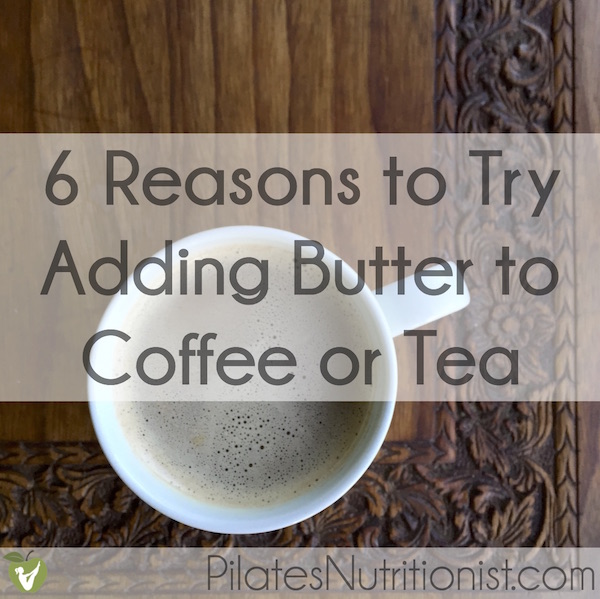
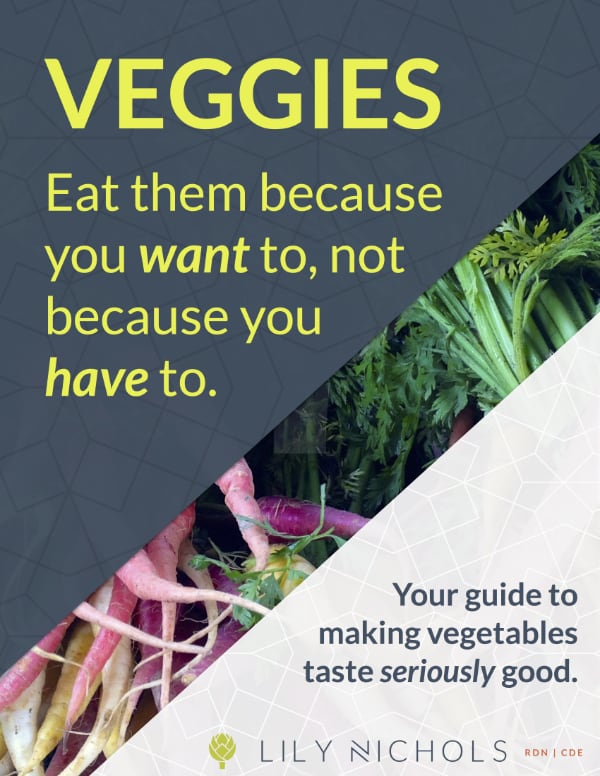
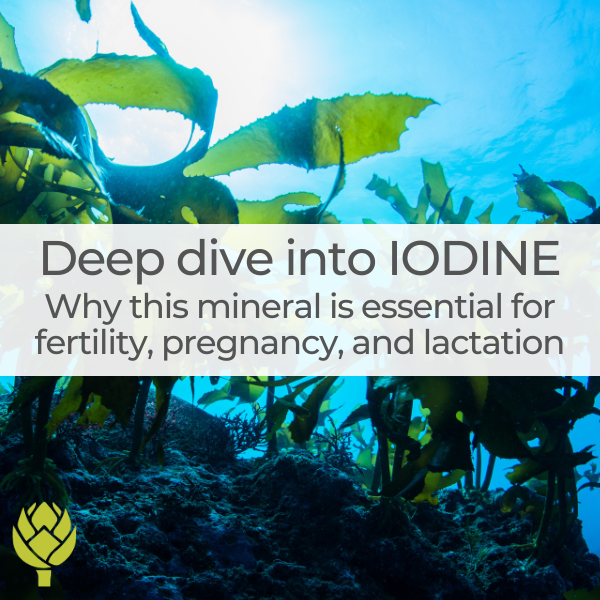
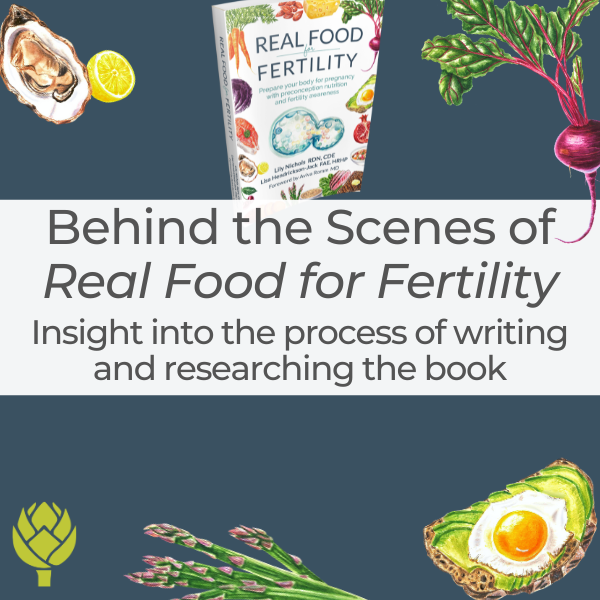
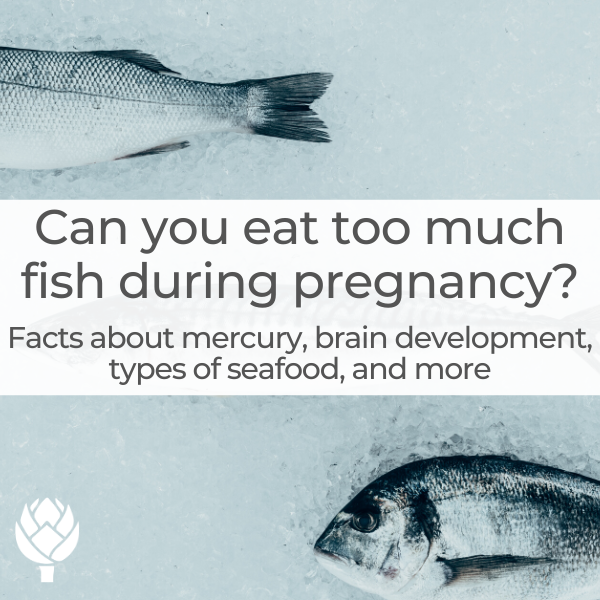
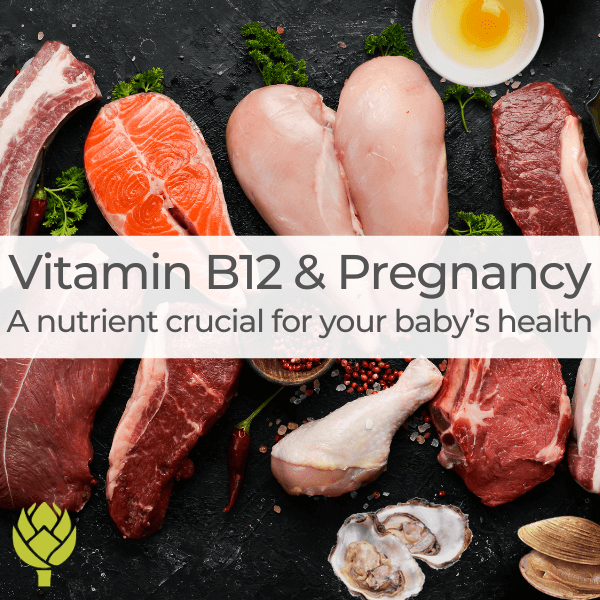




If you want to be even more of a butter snob, ditch the Kerrygold; it’s not from *100%* grass-fed cows (http://tinyurl.com/mhjm9ch). Anchor butter is. I’ve found that my local Whole Foods will special-order it, if I buy at least half a case of it. (local store policies may vary).
Yep, I’m aware they supplement with some grains in the winter. However, if you’re not living in a city, Kerrygold is the best most can find locally. (I order grass-fed butter by the case and keep it in my freezer.)
Even worse than just supplementing with “some grains,” is that any company can legally say that their butter is “grass-fed” as long as it is as such for half the year. There is no standard at least in the U.S. that I know of for the quality of the feed they are eating potentially the other half of the year. Glyphosate wheat, GMO soy/corn… you get the picture. Amazing article btw, I think I may have found my new breakfast: Green tea with ghee and coconut oil!
We are currently stationed area which hosts a fairly large Crossfit, and therefore an equally large Paleo, following. Dabbling in some Paleo-inspired recipes, as well as watching what I’m eating to monitor sugar/carb intake, I’ve found that using butter or coconut oil in the morning (through coffee, or even when scrambling eggs without milk) significantly curbs my mid-day fat-food craving. But I’ve also found the same when I’ve have a bit of mayonnaise in the morning; a teaspoon mixed with quinoa and sliced tomatoes, for instance. So how do you feel about it as a fat source? Especially homemade, the essential base of egg yolks, vinegar, and oil have individually shown to have healthy properties with moderate intake, right? I have a feeling I might be fooling myself here, trying to parallel my hard-to-give-up mayo with the health benefits of buttered coffee, but would love to hear your input. As always, thank you for the healthy inspirations!
Hi Jill! I’m a big fan of dabbling and find that most people do well with more fat in the morning. 🙂
As far as mayo goes, it’s all about quality ingredients. There’s one company I’m aware of that makes a good one (i.e. no processed veg oils, pasture-raised eggs. It’s called Primal Kitchen and uses avocado oil as a base.
The other alternative is to make your own (it’s reeeeally easy). My friend, Jessica Beacom, has a nice recipe for ya here.
the link for the mayo does not work!
Hmmm. Looks like she changed her website. Here’s another good recipe: http://www.realfoodwithdana.com/30-second-immersion-blender-mayonnaise/
Thanks for the link, Lily! Happy to help with lots of paleo recipes and resources if you need 🙂
Thanks Dana!
Thank you for the Mayo recipe!
I love me some coconut oil in my coffee!!! It tastes great, prevents me from having any jitters if I drink it on an empty stomach and I don’t get nearly as hungry before lunch. Great article, Lily! Love seeing all the research to back up what I was intuitively inspired to do!
Great article. Do you have a source of the study about ” adding milk to coffee reduces bioavailability…”
Thank you!
Eva
Of course, Eva. 🙂
Duarte GS1, Farah A. Effect of simultaneous consumption of milk and coffee on chlorogenic acids’ bioavailability in humans. J Agric Food Chem. 2011 Oct 12;59(19):10772.
Hi Lily,
I love this article; I spent some time in Tibet (many) years ago, and I really enjoyed Tibetan butter tea. Yak butter was from raw milk, and salt was (of course) Himalayan salt. This made the beverage really healthy thanks to the enzymes, good bacteria, great fats, and minerals. Actually Tibetans used to drink this tea as their main source of food together with tsampa (the carbs). And I confirm: it does keep you full for a while!
I love your insider stories, Anne. I can only assume that the yak butter shipped to Massachusetts wasn’t top quality (or at least wasn’t fresh). You make it sound delicious! Hopefully someday I’ll be lucky enough to travel there myself an try the real thing.
I’ve been hearing so much about this butter in your coffee thing and I’m really tempted. Your post though is the best article I’ve found to explain the benefits. I love the butter brand Plugra, I think I’ll try it. Can I use espresso or is drip coffee the only way to do this? Thank you for these great tips!
Hi Brenda,
Yeah, give it a shot! Espresso would work just fine. All you need is a hot liquid to melt the butter and you’re good (coffee, espresso, tea, cocoa, etc.).
Does coconut oil have the same effect?
I read somewhere that people drink green tea with coconut oil, tried that myself and quite liked it 🙂 Will have to give my blender a go though!
Yes Kat, same effect. Coconut oil won’t get as creamy or latte-like, but it’s still yummy and has its own health benefits.
I used to love bulletproof coffee, but for some reason I got out of the habit of drinking it. Thanks for reminding me about it. I’m off to get some Kerrygold which was always my favourite butter. 🙂
I’ve got grassfed butter, coffee, and an immersion blender. I’m trying it tomorrow! I’ve been wanting to for a while. A bunch of my friends have been talking about it but I didn’t get a chance to research it. Thanks for writing.
I had gallbladder removal surgery. I know you stated that if you have gall blader problems-skip it.
Well, I no longer have a gall blader,so is it safe?
I found this after I posted the question. Is it correct? Thanks so much!
http://www.netwellness.org/healthtopics/diet/gallbladder.cfm
After Gall Bladder Removal (Cholecystectomy)
After a gall bladder removal, it is important to follow a low-fat diet for several weeks or months. Fat tolerance varies from person to person, and therefore the diet needs to be tailored to your needs. This is why speaking to a Registered Dietitian (RD) is recommended. Eventually, you may be able to return to an unrestricted diet.
The main reason for a change in diet is because the body has difficulty in handling fats after a cholecystectomy. Fat and certain fat-soluble vitamins require bile in order to be absorbed. When the gallbladder is present, it stores bile that the liver makes. During a meal, the gallbladder contracts, releasing a pool of bile into the intestine that is used for fat absorption. After the gall bladder is removed, bile is still produced by the liver, but it is released in a continuous, slow trickle into the intestine. Thus, when eating a meal that is high in fat, there may not be enough bile in the intestine to properly handle the normal absorption process.
The change in intestinal bile concentration during high-fat intake may cause diarrhea or bloating, because excess fat in the intestine will draw more water into the intestine, and because bacteria digest the fat and produce gas.
People who have had their gall bladder removed have varying tolerances to the very foods that previous to their surgery may have caused gall bladder attacks. These foods may have been high fat or fried foods in addition to whole grain breads and cereals, nuts, seeds or gas producing vegetables (baked beans) from the cabbage family (broccoli, brussel sprouts, cabbage or cauliflower). Spicy food seasoned with red or black pepper may cause some discomfort for persons with gall bladder disease but not necessarily. Symptoms may range from burping (heartburn) and gas to a feeling of fullness (feeling as if the food is not going in the right direction).
Things you can do to reduce your symptoms:
Choose leaner meats, skinless chicken and fish and remove visible fat before cooking
Be careful with foods containing hidden fats such as fast foods, full fat dairy products, convenience meals, toasted sandwiches, pastries, nuts and nut butters.
Use low-fat dairy products such as non-fat (skim) or low fat milk (1%), reduced fat cheeses, low fat yogurt and reduced-fat spreads
Be mindful when eating out, choose foods such as vegetable soups, dressing-free salads, grilled fish (with no lemon butter), grilled chicken with no skin and rice or baked potatoes. Eat small portions ( plan on taking some home)
Limit the fat and oil intake to no more than 2 to 3 servings per day (1 serving = 1 tsp. oil/butter/margarine).
I’m so happy I found your site! There’s some really great info here. Thank you! I’ve been drinking coffee with butter and coconut oil for about 2 months. It helped me finally kick the nasty habit of drinking coffee with those sugary, non dairy creamers. The butter and oil take away the bitterness of a black cup of coffee. I love it so much, sometimes I go to bed excited about my butter coffee in the morning.
Love it. It adds a rich creamy texture that half and half doesn’t begin to have. You can also use a couple of drops of extracts like vanilla, black walnut, pecan etc…to give it some seasonal variations.
I think my morning coffee ritual is so ingrained that no matter what modifications I make to my diet (more organic, less processed, increasing whole foods) I insist that my coffee with half and half (albeit, grass fed) is something I will NEVER go without (I truly do love my first cup of rich coffee and cream to start my day). But… tomorrow I think I will try the butter, and even maybe the butter and coconut oil together. It’s really the only time I consume milk. I have been experimenting with ghee (different taste but lovely all the same) and making my own mayonnaise (very easy!!) in an effort to undo the years of consuming too much ‘stuff’ from the center aisles of the grocery stores. This might be a way to give up one more ‘questionably healthy’ food.
Let us know how the experiment goes, Cathy!
I keep ready these claims and no one ever posts a citation or names a study substantiating them. The body prefers to use fat for energy in the morning? That is absurd. The body can only use glucose for energy all the time period. Our bodies will breakdown carbs, fats or proteins to make glucose, but always in that order. When carbs are made available they are the easiest to breakdown and will always be used first. Please correct me if I am wrong, by showing me the evidence. Muscles prefer triglycerides over nonesterified fatty acids but over carbohydrates. (http://www.ncbi.nlm.nih.gov/pubmed/3374320).
This should clear up any confusion: Manninen, Anssi H. “Metabolic Effects of the Very-Low-Carbohydrate Diets: Misunderstood ‘Villains’ of Human Metabolism.” Journal of the International Society of Sports Nutrition 1.2 (2004): 7–11. PMC.
Hi, will it work the same if I use decaf?
Yep!
I do this in the morning. I add a raw egg to a cup of coffe or tea with 1 or 2 tbls. Of unsalted butter.. works gteat. Sometimes 1/2 banana.
sounds amazing! Is it creamy?
Sounds like desecration of tea.
I know what you’re talking about when you said it could be oily. If it isn’t made properly the butter will float to the surface. It needs to be emulsified very well. As far as your comment about not adding salt I think that’s a mistake. I’ve tried it both ways and without the salt it’s very flat, with the salt it adds that certain “Je ne sais quoi”. You can experiment with how much salt to add but I wouldn’t leave it out.
how long should I blend?
This is heaven! Everyone thinks it sound gross, but like you said, don’t knock till you’ve tried it.
Can you add a little honey for sweetness?
No, as that would completely defeat the object of making your body prefer fat as an energy source. If it has carbs, it will want more carbs and you will feel hungry, possibly even get a headache if you don’t eat more carbs. Guess who learned this the hard way…
stevia…
Hi there Lilly ,
What a great article. I have just switched from half and half to coconut oil , butter and little bit of vanilla cream liquid stevia it is delish! I’m trying to cut way back on dairy products. My son in law does butter in his coffee and a friend of does coconut oilI. I thought using both sounded yummy, so I tried it and it was. I’m trying to figure out how to do a pumpkin spice type drink using the ingreatients mentioned. Do you have any suggestions?
Thanks satisfied reader.
Thanks Patti. For a healthy pumpkin spice latte, you could simply add a sprinkle of pumpkin pie spice (usually a combo of cinnamon, nutmeg, clove, etc) to your coffee with butter and coconut oil. It won’t be sweet, but it’s certainly better for you than the 75g of sugar found in the usual pumpkin spiced lattes!
Lilly
Would it be okay to use the organic liquid stevia? After having my coffee drink yesterday morning, my daily power green juice and two scambbled eggs. I had to force myself to eat the rest of the day. It is a fantastic appetite suppressant. I have to mention no jitters…
Hello, thank you for your good info. I just started this morning my coffee with butter, and will try it for a while to see how i feel….i have one concern i have not extra fat to loose!!!
So i was wandering if you know about skinny people doing it….if not i will let you know in 7 days….
Ah oui…i will do ghee with my unsalted butter….and try it too
Daniella
Just made my first cup of coffee with butter. I used my immersion blender too. The butter flavor was subtle and I really, really liked it! Thanks for sharing!
Hi Lily,
Could I use unsweetend almond or cashew milk with my coffee and two drops of stevia with 2 table spoons of butter. I’m caffeine sensitive so I usually do about 3oz, brewed coffee with 6 ounces unsweetened almond milk. I added 1 teaspoon of salted organic butter with 2 drops of my stevia and it was so delicious, but I don’t want to be causing more harm than good if the almond milk and stevia negate the benefits too much. Thank you, Lynn
That’s perfectly fine. As long as the carbs/sugars are kept low, you’ll get the same benefits of adding butter to coffee.
Can I use only butter in my coffee?? Or must I add coconut oil as well?
Hi Lily –
I recently started the paleo diet as I’m trying to lose weight. If I add a teaspoon of ghee to my coffee (which I’ve been doing) should I really be skipping breakfast?
I have no gall bladder. Can this be bad for me to drink?
Probably best to skip. Eating large quantities of fat at one time is not advised if you no longer have a gallbladder.
Great facts and helpful hints!!❤❤
Having read this I believed it was rather enlightening.
I appreciate you finding the time and effort to put
this informative article together. I once again find
myself spending a significant amount of time
both reading and leaving comments. But so what, it was
still worthwhile!
My understanding is that hypoglycemia in non diabetics is very rare – are you saying we should try to prevent it anyway? or that it happens more often than we think?
Hi Lily
Does adding butter or other forms of unsaturated fat help in increasing weight? I have a very thin face and get picked on about it a lot by family and friends. Will this help in becoming more chubby?
Also my dads family have a history of high cholesterol so I’m aware I’m prone to it too and worry I will also have high cholesterol and I am only 18. Is there any advise or suggestion?
Rojitha x
Hi- I have heard of adding butter to coffee or tea in the past and understand the concept behind it. Unfortunately, I can’t stand the flavor of coffee and I am allergic to tea. So I thought the butter/coffee idea would not work for me. Then I had an idea, could I do chicken bouillon and butter? Would that work? It isn’t as low carb as coffe but nearly from what I can see. I tried it this morning with butter. It was delish. I am a diabetic. Will I be hurting my body doing this? Thx
Now I know why my grandmother used to tell me to add a spoon of clarified butter (ghee) in a cup of tea when ever I had dysentery.
Nice article. Thanks!
This recipe sounds me. This is perfect summer drink. It looks so delicious and I will be making your recipe. Thanks for sharing.
I’m loving my morning bulletproof coffee. I use 20 grams of butter and 25 grams of MCT oil in one cup of instant coffee (I started with 10 grams of MCT oil and gradually increased it). I’m a lean, quite active person but had high cholesterol so decided to try a LCHF diet. My biggest problem is getting enough calories and the bulletproof coffee certainly helps there. My cholesterol has come right down and I’m finding other benefits too like not so dry skin and much less joint pains (I’m in my 60’s) and more! It’s early days but hopefully these benefits will be sustained…..
I found this article very interesting and very informative. And I really agree that with you that can help also with weight loss. I thank you for sharing this. I also used to add a spoon of clarified butter (ghee) in a cup of tea whenever I had dysentery.
What brands of Organic Coffee are good?
(and flavors)
Hi, really good article and great information. I am willing to give this a go but I have an uderactive thyroid and take 100mgs thyroxine daily but still struggle to loose weight, even though I exercise almost daily. Any idea if this will this will help or hinder the effects of the medicine? Thanks
Throughout my childhood and teenage, I’ve eaten tea butter roti( you can search for it what it is, basically it is made of flour).
So how did I eat this?
The butter was spread on roti and I used to dip it in tea and eat.
I used to have this as breakfast.
I’m not sure though whether this is the reason why my bmi is less than 18.
It surely is a tasty food but I want to know whether it is healthy to eat it or not
I use salted Irish butter, because it tastes better, and because I get dehydrated easily, and coffee and tea are both diuretics.
I’m 73 and have been drinking tea with butter since age 12 when I accidentally dropped a pat of unsalted butter in my tea. I liked the taste and have drunk my tea this way ever since. Glad to know it’s a real thing.
Butter tea is also what Mongols, some Tatars drink, not just Tibetans, I am Tatar. I just tried butter in a cup of coffee, but had to add French Vanilla Coffee Mate to get it to taste good.
Hi Lily..Great article. Just for the record, I have been doing the butter in my coffee for over 6 years now..every morning..with just butter. (2 cups 24oz total..2 tablespoons Kerrygold). It has kept my hunger down until around 2 to 3pm and my weight very steady. I am a intermittent faster and I have found that this works for me. I eat/snack up to 9pm..so I always get a good fast.